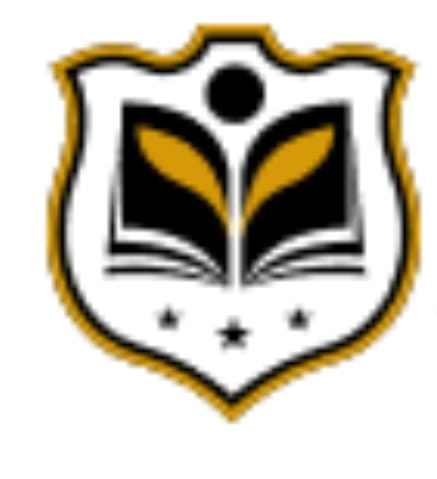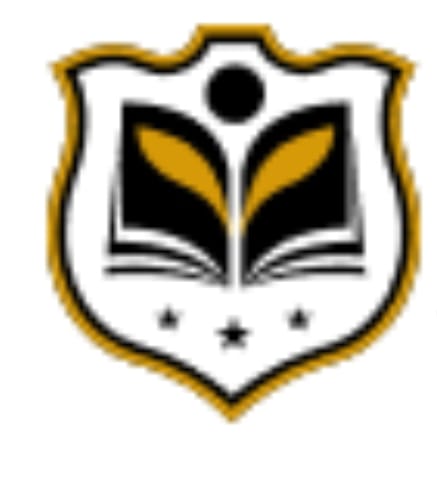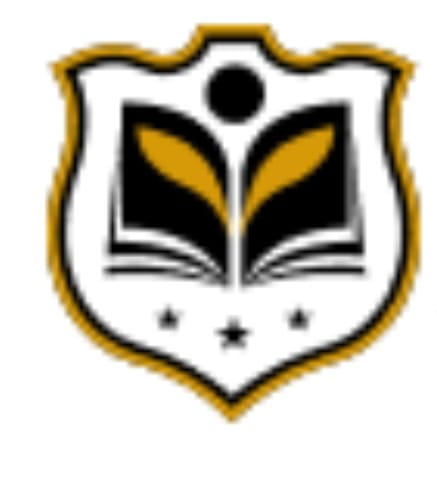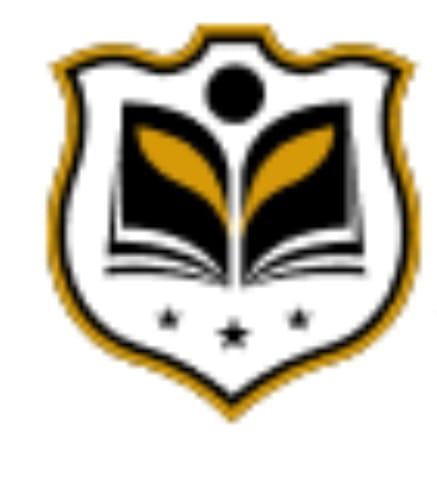ACADEMIA International Journal for Social Sciences
Our Advisors
.jpg)
Prof Dr. Rubeena Zakkar (MBBS Pak, MPS Pak, PhD Germany, Post Doc in process USA)
rubeena499@hotmail.com
Professor / Director University of Punjab, Lahore
Chief Advisor AIJSS
.jpg)
Dr. Syed Muddasir Fida Gardezi (PhD law Pak)
mudasser@immigrationadvisers.com
Legal Executive Immigration, UK
Advisor AIJSS
.jpeg)
Dr. Mushtaq Hussain (PhD Pak)
MKhan3@cardiffmet.ac.uk
Lecturer, Cardiff Metropolitan University, UK
Advisor AIJSS
.jpeg)
Dr. Uzma Munshi (PhD Pak)
Uzma.munshi@upr.edu.pk
Incharge / Lecturer Dept of International Relations, University of Poonch, AJK
Advisor AIJSS
.jpg)
Dr. Batool Atta (PhD USA)
batoolatta@gmail.com
Assistant Professor , Department of Education
PhD Michigan State University, USA
Advisor AIJSS
.jpeg)
Dr. Tayyaba Kiyani (PhD China)
kiyani@zju.edu.cn
Associate Professor, Vocational and Technical College
Lishui University, Lishui, Zhejiang China
Advisor AIJSS
.jpeg)
Dr. Muhammad Ahsan Qureshi (Phd Malaysia)
ahsanqureshi1@gmail.com
Assistant Professor, Department of Computer Sciences, University of Jeddah, KSA
Interdisciplinary Advisor AIJSS

Dr. Shafiq Ur Rehman (PhD Pak)
shafiq.rehmaan@gmail.com
General Manager (Technical), Public Sector Scientific Research & Development Organization
Interdisciplinary Advisor AIJSS
Our Editors
.jpg)
Prof. Dr. Imran Yousaf (PhD Pak, Post Doc in process UK)
dr.imran@uaar.edu.pk
Professsor of Education, HOD Education, PMASUAAR, Pakistan
Chief Editor AIJSS
.jpg)
Dr. Syed Jawad Zareen (PhD Pak)
jawadgardezi55@gmail.com
Assistant Professor Department of Education, AJK
Editor AIJSS
 (3).jpeg)
Dr. Muhammad Kashif Ali (PhD Pak)
m.kashif@uog.edu.pk
Lecturer / Member Faculty Board, Department of History & Pak Studies
University of Gujrat, Pakistan
Editor AIJSS
.jpeg)
Dr Abdul Rehman Khan (PhD Pak)
drabdulrehmank@upr.edu.pk
HOD Islamic Studies, University of Poonch, Rawalakot AJK
Editor AIJSS
.jpg)
Dr. Adeeba Khan (PhD Pak)
khanadee@upr.edu.pk
Assistant Professor Managment Science, University of Poonch, AJK
Editor AIJSS

Dr. Tamkeen Saleem (PhD Pak)
tamkeen.dcp@stmu.edu.pk
Associate Professor/HOD in Department of Clinical Psychology, Shifa Tameer-e-Millat University, Islamabad
Editor AIJSS

Dr. Mansoor Ahmed (PhD France)
mansoorahmed@gcuf.edu.pk
Assistant Professor
Department of History, Government College University, Faisalabad
Editor AIJSS
Guidelines & APC
Author Guidelines & Article Processing Charges
Please open the above link that includes all the mandatory requirement and steps to guide authors regarding format and manuscripts.
Open Access "Article Processing Charges" (APC) for Authors
* Nationals of High Income Countries = 300$
* Nationals of Middle Income Countries = 200$
* Nationals of Low Income Countries = 100$
(As Pakistan is considered a Lower / Middle Income Country, therefore APC for Pakistani Authors is 35,000/- PKR)
*There are no editorial processing charges, article submission charges, page charges and colour charges etc.
*The authors must submit the APC only upon acceptance of article.
Reviewer Guidelines
Please review the article through the following steps:
1. Acknowledge to survey the article by transferring your Mark and Stamp in delicate on the primary page
2. Kindly download the Article document FIRST.
3. Peruse the Commentator's rules on the Subsequent page
4. Finish up the survey structure
5. Submit
Important Note for the Reviewers
1. ACADEMIA International Journal for Social Sciences (AIJSS) issues "Certificates of Affirmation" to the commentators who keep a 5 Stars Analyst Rank for One Year.
2. AIJSS pays the reviewers' according to the quality kept up with by the analyst at 5 Star Audit Rank, made sense of underneath.
3. AIJSS additionally gives the office of showing great remarks by the Authors for the analysts on the site with Just the Distinguishing proof Code of the reviewers.
4. AIJSS names just those researchers who hold a base PhD degree in unambiguous areas of examination as a reviewer.
5. AIJSS lean towards just Partner/Full Teachers as reviewers.
6. AIJSS applied the quality survey standard of a 5-star positioning among reviewers (please guarantee your position ought to be at 5 if not ACADEMIA won't send you further tasks for review)
5 Star Quality Review Policy for the Reviewers:
• Single Star = Filling of Review Structure Form solely after going through the document.
• Two Stars = Review + "Ordinary Remarks for the Editors and Authors"
• Three Stars = Review + "Consistent and Exhaustive Remarks for the Editors and Authors"
• Four Stars = Review + "Consistent and Exhaustive Remarks for the Editors and Authors" + Amendment remarks on required lines/passages in the 'Article Document' for the author(s)
• Five Stars = Review + "Sensible and Careful Remarks for the Supervisor" + Variety Plan Application + Full and Thorough Revision/Upgradation Remarks on required lines/sections in the MS Word Article Record for the author(s) + Language structure Rectification Remarks in the Article
Payments for the Reviewers
1 Star = PKR. 1,000 (or $ 4 for out-of-Pakistan reviewers)
2 Star - PKR. 2,000 (or $ 7 for out-of-Pakistan reviewers)
3 Star - PKR. 3,000 (or $ 11 for out-of-Pakistan reviewers)
4 Star - PKR. 4,000 (or $ 14 for out-of-Pakistan reviewers)
5 Star - PKR. 5,000 (or $ 18 for out-of-Pakistan reviewers)
AIJSS collects a nominal fee for the Reviewers' "Certificates of Affirmation".
Principled Guidelines For the Reviewers
A review of the original copy by reviewers isn't just a fundamental part of formal academic commitment but at the same time is a major move toward the distribution cycle as it helps the editor in publication direction. It additionally permits the author(s) to work on their original copy through publication interchanges. Researchers tolerating to survey an examination paper have a moral obligation to expertly finish this task. The quality, believability, and notoriety of a diary likewise rely upon the companion survey process. The companion survey process relies upon the trust and requests that a commentator should satisfy morally. These experts are the energy arm of the survey cycle, however they might be playing out this occupation with next to no conventional preparation. As a result, they might be (particularly youthful experts) ignorant about their moral commitments. The Higher Education Commission (HEC), Pakistan needs to list down 'Moral Rules for Reviewers' so all analysts offer their significant types of assistance in a normalized way.
Correctness and Promptness
• Illuminate the Editor, in the event that they don't have the subject mastery expected to do the audit and s/he ought to illuminate the Editor following getting a solicitation.
• Be dependable to act expeditiously and present the audit report on time.
• Promptly educate the Editor regarding any potential deferrals and propose one more date of accommodation for a survey report, and
• Not superfluously postpone the audit cycle, either by delayed defer in accommodation of their survey or by mentioning pointless extra information/data from the Editor or author(s).
Principles of Objectivity
• The reviews ought to be dispassionately completed with a thought of high intellectual, insightful, and logical principles.
• All decisions ought to be carefully settled and kept up with to guarantee the full understanding of the analyst's remarks by the editors and the author(s).
• Mutually reviewers and author(s) in rejoinder ought to stay away from unsupported affirmations,
• The reviewer may reasonably censure a composition however it would be improper to turn to individual analysis of the author(s), and
• The reviewers ought to guarantee that their choice is simply founded on the nature of the exploration paper and not affected, either emphatically or adversely, by any private, monetary, or other clashing contemplations or by scholarly inclination.
Revelation and Clash of Interest
• A reviewer shouldn't, for his/her research, utilize unpublished material unveiled in a submitted composition, without the endorsement of the Editor.
• The information remembered for the examination paper is private and the commentator will not be permitted to involve it for his/her review,
• A reviewer should proclaim any possibly clashing interests (for example individual, monetary, scholarly, proficient, political, or strict). In such a circumstance, s/he will be expected to follow the diary's approaches.
• A reviewer ought to be sufficiently straightforward to pronounce irreconcilable situations, if, the exploration paper under survey is equivalent to his/her by and by directed study.
• Assuming the analyst feels unfit to isolate his/her predisposition, s/he ought to quickly return the composition to the Editor without audit, and legitimize to him/her the circumstance.
Privacy
• Reviewers ought to consider the examination paper as a private report and should not examine its substance on any stage besides in situations where proficient guidance is being looked for with the approval of the Editors, and
• Reviewers are expertly and morally bound not to reveal the subtleties of any examination paper before its distribution without the earlier endorsement of the Editor.
Moral Considerations
• Assuming the reviewer supposes that the exploration paper is practically equivalent to another person's work, s/he will morally illuminate the Editor and give its reference as a kind of perspective.
• Assuming the reviewer supposes that the outcomes in the exploration paper are false/unreasonable/counterfeit, s/he will impart it to the Editor.
• Assuming there has been a sign of disregarding moral standards in the treatment of people (for example kids, females, needy individuals, incapacitated, old, and so forth), then, at that point, this ought to be recognized to the Editor.
• On the off chance that the examination paper depends on any past exploration study or is an imitation of a previous work or the work is copied for example the creator has not recognized/referred to others' work fittingly, then this ought to be brought to the Editor's information.
Uniqueness
For assessing innovation, the reviewers ought to think about the accompanying components:
■ Does the exploration paper add to existing information?
■ Are the exploration questions and additionally speculations in accordance with the target of the research work?
Formation
In the event that the design and arrangement of the paper are not as per the recommended variant, the reviewers ought to talk about it with the Editor or ought to remember this perception for their review report. Then again, assuming the examination paper is especially elegantly composed, the analyst might disregard the designing issues. At different times, the reviewers might recommend rebuilding the paper before distribution. The accompanying components ought to be thoroughly assessed:
■ Assuming there is a difficult issue with language or demeanor and the reviewer gets the feeling that the examination paper doesn't satisfy phonetic prerequisites and perusers would confront challenges perusing and fathoming the paper. The reviewer ought to keep this lack in his/her report and recommend the editor make the appropriate altering. Such a circumstance might emerge when the author(s)' local language isn't English.
■ Whether the information introduced in the paper is unique or imitated from recently directed or distributed work. The papers which reflect creativity ought to be given inclination for distribution.
■ The clearness of delineations including photos, models, diagrams, pictures, and figures is crucial for note. In the event that there is duplication, it ought to be accounted for in the audit report. Also, depictions gave in the "Results" segment ought to relate with the information introduced in tables/figures, while perhaps not then it ought to be recorded in the survey report.
■ Fundamentally survey the measurable examination of the information. Likewise, to really take a look at the reasoning and propriety of the particular investigation.
■ The reviewers ought to peruse the "Philosophy" area exhaustively and ensure that the author(s) has exhibited a comprehension of the methods being utilized and introduced in the original copy.
■ The connection between "Information, Discoveries, and Conversation" requires an exhaustive assessment completely. Pointless guesses or unwarranted ends that are not in view of the introduced information are not OK.
■ Further inquiries to be tended to are whether: the association of the exploration paper is proper or veers off from the norm or endorsed design.
■ Does the author(s) keep the rules endorsed by the diary for the readiness and accommodation of the original copy?
■ Is the research paper liberated from typographical mistakes?
Authors are firmly encouraged to set up the composition according to the accompanying rules if not it will return to you and defer the distribution.
During the accommodation cycle, authors should guarantee their accommodation complies to the accompanying rules:
• The accommodation shouldn't have been recently distributed or viable by another diary, except if made sense of in the "Remarks to the Editor" segment.
• The accommodation document should be in OpenOffice or Microsoft Word design.
• The article ought to incorporate the accompanying segments: Title, Dynamic, Watchwords, Presentation, Writing Audit, Approach, Investigation and Conversation, and End.
• The composition ought to be written in English, with the theoretical restricted to 300 words, and the general text ought to go from 5,000 to 10,000 words, including all components like catalog and tables.
• If submitting to a friend explored segment of the diary, the guidelines for guaranteeing a visually impaired survey should be followed.
• The text and collection of article ought to be according to the joined diary design as underneath. Representations, figures, and tables ought to be suitably positioned inside the message following APA style.
• Inability to follow these rules might bring about the arrival of the accommodation.
Script and length of compositions
Builds and factors are recognized in words, not shortenings.
In light of the particular rules, here is a more exact outline of the substance and length necessities for compositions:
Length: Original copies ought to be limited to around 5000 to 10000 words, including all segments like the theoretical, primary text, references, and any indices.
Title and Author Data: The main page ought to incorporate the title of the composition, the author's name, affiliations, and contact.
Summary: The theoretical ought to be something like 500 words and ought to give a rundown of the whole paper, in addition to the ends. It ought to likewise incorporate a rundown of three to five catchphrases reasonable for ordering and abstracting administrations.
References: References ought to follow a uniform style all through the composition. Reference the board programming EndNote can be utilized to oversee references.
Plagiarism Breaking point: The composition shouldn't surpass a copyright infringement cutoff as per HEC's plagiarism policy i.e, <19%.
Formatting: The last organizing of the original copy will be finished by a group from the International Journalism.
Ethics Statement
The journal adheres generally to the Core Practices recommended by COPE.
Allegations of misconduct
The Managing Editors will respond promptly when ethical concerns are raised with regard to a submitted manuscript or published paper. All instances of reported unethical behavior in publishing, including those identified long after the publication date, will be investigated. Acts such as plagiarism and the publication of duplicate content are unequivocally regarded as misconduct. Should the investigation reveal that these ethical concerns are substantiated, the journal reserves the right to retract the implicated article or, alternatively, to issue a correction or a statement of concern in its pages and may contact the author’s academic institution.
Authorship and contributorship
The expectation is that every author named on a submitted paper has made a significant contribution to its creation and has agreed to its submission. Furthermore, authors are responsible for addressing any external claims regarding contribution to their paper.
Complaints and appeals
Appeals regarding editorial decisions, when supported by solid reasoning, should be submitted to the Managing Editors of the journal. Any concerns about editorial misconduct should be reported to the journal's Steering Committee. These issues will be taken seriously and handled swiftly. Specifically, the Steering Committee is responsible for making decisions on matters related to editorial policy and the content of the journal.
Conflicts of interest / Competing interests
The journal diligently works to address potential conflicts of interest involving authors, reviewers, and editors. In situations where editors have a conflict of interest with an author or authors of a paper, they are expected to recuse themselves from any discussions or decision-making processes related to that paper. Likewise, reviewers who find themselves in a conflict of interest with an author are advised to refuse the task of reviewing their work. Conflicts of interest can arise from various connections, including personal or business relationships, current advisory or mentorship roles, recent collaborative work, or shared affiliations with the same institution.
Data and reproducibility
Authors who present papers featuring results derived from experimental data or computer-assisted proofs are urged to provide the pertinent code or data to facilitate reproducibility. The journal accommodates the inclusion of supplementary files with each article, which can be used to publish relevant data or computer code. It is important that instructions for replicating the data are clearly provided either in the main publication or within these auxiliary files.
Ethical oversight
The journal will take reasonable steps to ensure that publications avoid inflammatory language and do not disclose data that would violate an individual’s privacy. Personal data collected during the editorial process, beyond a paper’s bibliographic metadata, will be kept confidential.
Peer review processes
Each submission is assigned to one of the Handling Editors. If the paper meets the standards set forth by the mission statement of the journal, then at least one independent external referee is invited to review the submission. If the Handling Editor determines that a submission does not meet the standards of the journal, then the authors will be notified and the paper may be rejected without additional reviews.
Post-publication discussions and corrections
Authors are expected to promptly notify the Editors of any significant errors found in their work that has been published in Combinatorial Theory. Should the editors learn of a third party questioning the accuracy of a publication, they will reach out to the authors. It is then the responsibility of the authors to thoroughly assess the claim and either confirm the error or offer a rebuttal.
Terms and Conditions
1. Submission Formatting: All research paper submissions must adhere to the specified formatting guidelines, including citation styles, headings, and overall structure, as outlined in our submission guidelines.
2. Originality and Plagiarism: Authors are required to submit original work. Plagiarism (as per HEC's plagiarism policy i.e, <19%), in any form, is strictly prohibited. Proper citations and references are essential to avoid academic misconduct.
3. Peer Review: Submitted research papers will undergo a rigorous peer review process conducted by experts in the respective field. The decision of the reviewers is final and binding.
4. Copyright and Licensing: Authors grant ACADEMIA International Journal for Social Sciences (AIJSS) the right to publish, distribute, and archive their research papers while retaining the copyright to their work. Specific licensing terms may apply based on the journal's policies, details are given below.
5. Withdrawal and Retraction: Research papers can be withdrawn or retracted only under exceptional circumstances and with the approval of the editorial board. The reasons for withdrawal or retraction will be thoroughly assessed.
6. Conflict of Interest: Authors are expected to declare any potential conflicts of interest related to their research. This ensures transparency and ethical research practices.
7. Privacy and Data Protection: AIJSS respects the privacy of all users. Personal information provided during registration and submission will be protected in accordance with applicable data protection laws.
8. User Conduct: All users, including authors, reviewers, and readers, are expected to conduct themselves in a professional and respectful manner within the AIJSS community. Harassment, hate speech, or any form of disruptive behavior will not be tolerated.
9. Accessibility: AIJSS is committed to ensuring accessibility for all users. We strive to make our platform usable and accessible for individuals with disabilities, in accordance with relevant accessibility standards and regulations.
10. Modification of Terms: AIJSS reserves the right to modify these terms and conditions at any time. Users will be notified of any changes, and it is the responsibility of users to review and accept the updated terms if they continue to use the platform.
By using AIJSS, you acknowledge and agree to abide by these terms and conditions. It is essential to familiarize yourself with these terms to ensure a positive and productive experience within our academic community.
Copyright and Licensing
All research papers published in AIJSS are permanently available online without any restrictions. These can be read, downloaded, and cited on the condition that appropriate acknowledgement/ citation is included.
Copyright
Copyright of an open-access research paper published in AIJSS is retained by the Author(s) concerned due to his/ her original work. Author(s) grants a license to AIJSS to publish his/ her research paper and identify itself as the original publisher.
Author(s) is encouraged to post his/ her research work, published in AIJSS, online under their names or ID along with DOI/ URL (duly attributing to AIJSS as original publisher) to make their publications available to a larger audience to increase the impact factor and citation levels.
If a research paper published in AIJSS needs to be translated or republished in another journal (or any other publishing medium), prior permission must be obtained from the original publisher.
Licensing
Articles published in AIJSS are licensed under an open-access Creative Commons Attribution License. A research paper published in AIJSS may be reused and quoted provided the original version is cited while ensuring that the Author(s) receives proper credit.
Users are free to Share (copy and redistribute the material in any medium or format) and Adapt (remix, transform, and build upon the material). The licensor cannot revoke these freedoms if they follow the license terms:
-
- Attribution — You must give appropriate credit, provide a link to the license, and indicate if changes were made. You may do so in any reasonable manner but not in any way that suggests the licensor endorses you or your use.
- Non Commercial — You may not use the material for commercial purposes.
- No additional restrictions — You may not apply legal terms or technological measures that legally restrict others from doing anything the license permits.
Roles & Responsibilities
Advisor's Roles
- Support the AIJSS and its Editorial Board by guiding and sharing the best practices, experiences and ideas to the AIJSS.
- Act as an advisory body to the Chief Editor and Editorial Board regarding issues related to strategic planning, policy making and direction of AIJSS.
- Consolidating AIJSS international reputation, recognized for their excellence and help suggest methods towards ever-increasing readership.
- Encouraging and promoting the submission of high quality manuscripts to AIJSS, by personally contacting authors and assisting with outreach to more international and expert authors/readers.
- Identifying reviewers to become part of AIJSS reviewer database.
- Suggesting theme for special issue of AIJSS or creation of a new journal with the consensus of Interdisciplinary Advisors (if required).
Editor's Roles
1. Screening the submitted manuscripts for possible publication in AIJSS.
The Editor may reject the manuscript without further review because of redundancy with recent material, or the manuscript quality is not sufficient to merit further attention and it is deemed too specialized for AIJSS readership.
2. Responsibility on technical features.
The Editor should ensure that every technical aspect of the manuscript is fulfilled by the author(s) before proceeding to reviewing process. Factors that must be considered in this area include the manuscript format, quality and size of figures and tables, and proofreading. The manuscript needs to be proofread for proper English usage, including grammar, punctuation, spelling, and overall style by the authors/Professional English Proofreading Services.
3. Responsibility on ethical policies.
Manuscript checks will be done on possible plagiarism, multiple submission of the same material to other journals, or disagreements related to various aspects of authorship would be relevant examples.
4. Managing the peer review of a manuscript.
The Editor need to manage the peer review process of the manuscript. Starting from finding appropriate peer reviewers, communicate with the authors and reviewers via the provided system and manage the repeated reviews. The manuscript will be handled by Editor until it reaches publication stage.
5. Finding appropriate peer reviewers.
When searching for potential reviewers, please provide for each potential reviewer, their title, full name, email full contact information and specific reason/criteria for selection of Editor’s suggestion. Minimum two (2) reviewers are needed to carry out the reviewing process.
6. Deciding the final decision on the revised manuscript.
Once peer review has been completed by peer reviewers or editors, the Editor has to determine whether the decisions to accept, reject, or the revision needs to be done again.
7. Keep all information confidential.
Please note that you must keep all the information we share with you in the strictest confidence.
8. Play a role as a strategic planner.
Editors should anticipate having their journals recognized for their excellence. Therefore the Editors should play a role as a strategic planner for SAECJ by help suggest methods towards improving, planning future direction and ensuring an ever-increasing readership of AIJSS.
9. Become as an Ambassador of AIJSS.
The editors need to encourage prospective authors to submit excellent material for possible publication in AIJSS. Furthermore, the Editor must motivate the reader to read, ponder, and implement the information provided in AIJSS. Editors constantly ask colleagues and associates to consider AIJSS when they are about to submit a manuscript for publication consideration.
Scope & Policy
Aim & Scope:
The Journal aims to provide quarterly basis (2024 onwards) a highly readable and valuable addition to the literature in the field of Social Sciences under scope of (Archeology, Anthropology, Archival Studies, Economics, Econometrics, Disaster Economics, Political Science, Public Administration, Defense and Strategic studies, International Relations, Psychology including clinical, Industrial, and Developmental Psychology, Philosophy, Sociology, Iqbal Studies/Iqbaliyat, Rural Development Studies, Social Work, Criminology, Library and Information Sciences, History, Demography and Population Studies, Ethnography, Conservation Studies, Religious Studies / Comparative Religion, Islamic Studies / Arabic Studies, Education, Special Education, Law and Legislature, Home Economics, Pakistan Studies, Peace & Conflict Studies, Behavioral Sciences, Women and Gender Studies, American /studies, Area Studies, Development Studies, Journalism, Mass Communication, Media Studies, Rural / Urban Studies, Women Studie) which will serve as an essential reference in future. We aim to provide a muti disciplinary Journal for years to come that will cover all disciplines of Science. We also intend to furnish a platform to the scientific community of all over the world.
Policy:
It is a Peer Reviewed Open Access Journal, published one issue in first volume, two issues in second volume and now publishing quarterly basis in the months of March, June, September and December. Our focus is to produce best out of best article / papers according to the policies of Board Members. In peer review if reviewers found any obscene, defamatory, abusive, fraudulent, plagiarised (as per HEC's plagiarism policy i.e, <19%), conflict or disputed, the article will not be published in the journal and if both reviewers give different opinion the matter is discussed with the Chief Editor and finally forwarded to a third reviewer as nominated by him and decide with majority's opinion.






